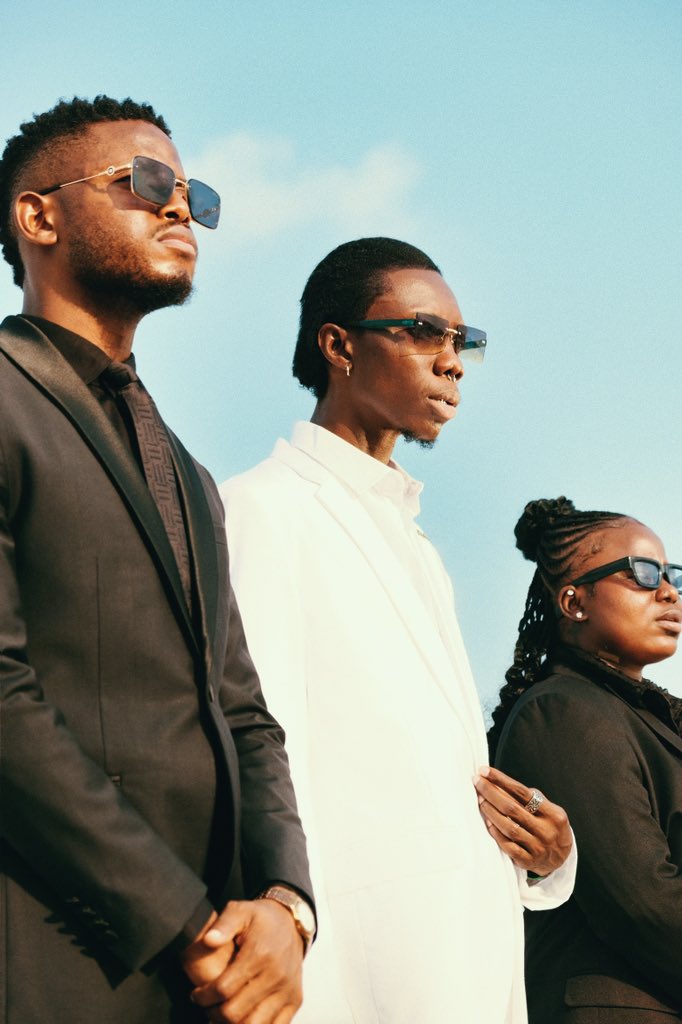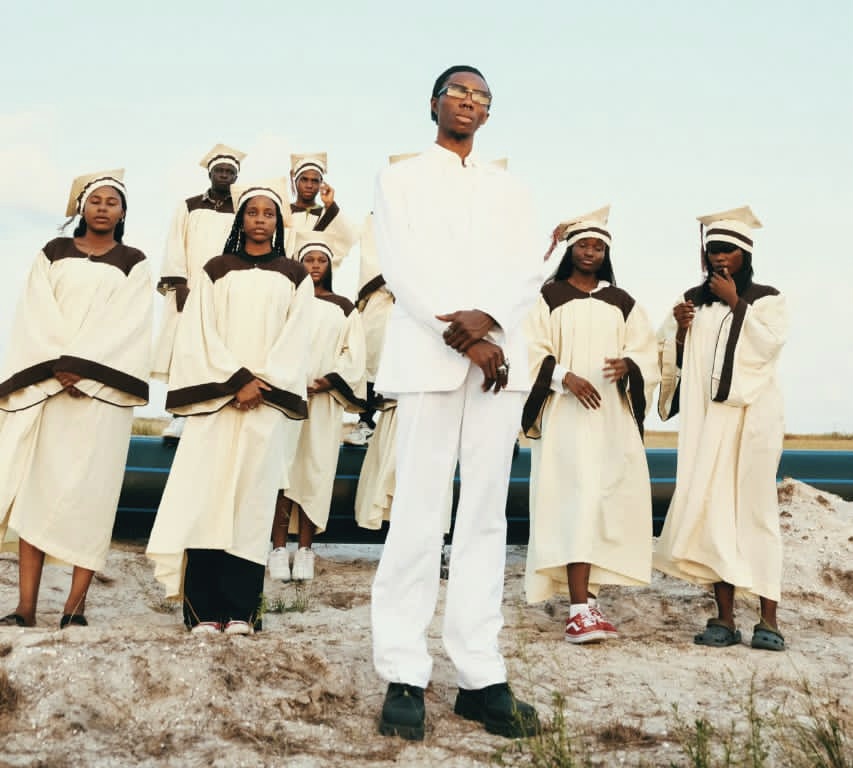With “Breaking the Yoke of Love,” Blaqbonez proves, again, that he is the “industry baby” able to sell us his music as both a product and a lifestyle.
By Sybil Fekurumoh
There couldn’t have been a more contrasting trio than that in “Breaking the Yoke of Love.” This contrast however compliments the artistes well. Chike and Raybekah appear to sing from a place of anger and hurt, while Blaqbonez’s cadence expresses apathy. Chike and Raybekah borrow the line “love is wicked,” made famous by the titular song by the duo Brick & Lace from 2007, ululating what love could be sometimes, and what it is today, while Blaqbonez sets the stamp, the reality of what love is now. The video opens with a table set with nothing but alcohol, on a sparsely vegetative land, perhaps to allude to the emotional state of the singers – hearts where love cannot thrive anymore.
Blaqbonez continues on his love renunciation path and proves that the philophobic persona displayed on his Sex Over Love and Young Preacher albums were far from mere stints. He picks up the thread of his philosophy with “Breaking the Yoke of Love,” his latest, thoughtfully-wrought song featuring Chike and Raybekah. It is the official theme song for his headline concert, “Breaking the Yoke of Love.”
In Blaqbonez’s verse, there are lots of parallels between his streak to the realities of how modern dating and relationship is perceived today. First, it starts with the obvious truth that love is not like the fairytales of our childhood, and perhaps you may not find love on the first try. Or, that monogamy is a limiting construct not suited for everyone, and exploring other forms of relationships such as polyamory is a reasonable option. But Blaqbonez’s machismo also becomes evident as his verse goes on.
It becomes less about finding the right person(s) and more about yearning for conquest by being with several women. When he name-drops celebrity “baddies” he would like to be with, in one line, and in the other references J Cole’s “Love Yourz,” a song about contentment, it becomes clear that it is less about love or the lack of it, but more about a desire for power that allows one to dominate and/or feel validated. These sentiments are understandable to a certain degree; after all, we live in a society that associates power and conquest with success. Here, power assures relevance, the kind that promises love, friendship, or even sex in return.
(Read also: Blaqbonez Causes Stir with Steamy Visuals for “Commander”)

Blaqbonez has several times spoken about the tendency of romantic partners to cheat, which matches the themes of his popular songs. It resonates differently from his songs from way back such as “Tosin’s Song” and “Mamiwota,” where he reveals a more affectionate side. Perhaps that is where the spiral to renouncing love began; heartbreak can turn one into the worst of cynics. Raybekah’s song, “Ex-Boyfriend,” for instance, was a heart-wrenching one about leaving toxic relationships. Now, she renounces love. Or we could conclude Blaqbonez’s fame and affluence come with less desire for relationships and more desire for self-gratification.
(Read also: Blaqbonez, Masculinity & the Philosophy Behind Sex Over Love)
I can’t help but think about the choral addition at the end, and the parody choir group, Kabusa Oriental Choir whose “Valentine is Coming” song become more popular in February. When you think about it, February is unofficially considered the month of love, with Valentine’s Day as the pinnacle for the expression of love.

It seems ironically fitting for the self-identified “Young Preacher,” to push an anti-love crusade at this time, and in his artistic and creative fashion, Blaqbonez leverages the Internet and social media as an indispensable self-promoting and marketing tool. With “Breaking the Yoke of Love,” Blaqbonez, proves, again, that he is the “industry baby” able to sell us his music as both a product and a lifestyle.
Sybil Fekurumoh is a senior writer for Afrocritik. Connect with her on Twitter and Instagram at @toqueensaber.





Fuck love